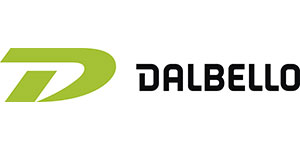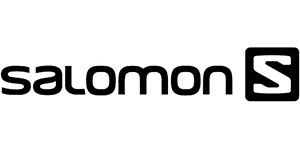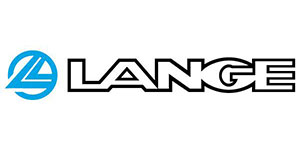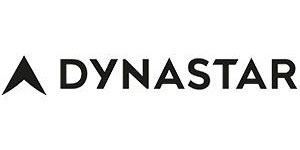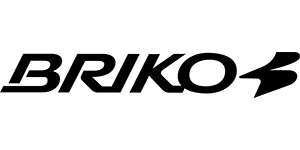Is it better to rent skis or buy them?
The choice between renting or buying skis depends on several factors and there is no one-size-fits-all answer. Consider these aspects carefully before making a decision:
When is it best to rent:
- You're a beginner: If you're just starting out in skiing, aren't sure how much you'll enjoy the sport, or whether you'll stick with it regularly, renting lets you try out different types of skis without a big initial investment.
- Skiing occasionally: If you only ski on a few vacations a year, renting saves you the hassle of hauling bulky equipment and storing it the rest of the year.
- Want to try different types of skis: Renting gives you the opportunity to test different skis, suitable for varying terrain and conditions, without having to buy multiple pairs.
- You have growing children: Children's feet grow quickly, so buying new skis every year can be expensive. Renting allows you to always have the right size equipment.
When is it best to buy:
- You are an expert skier: If you ski regularly and already have an intermediate or advanced level, buying skis allows you to have personalized and high-performance equipment, suited to your skiing style.
- You want high-quality equipment: If you are looking for cutting-edge skis with advanced technology, buying gives you more choice and the ability to customize your equipment to your needs.
- Want to save money in the long run: If you ski frequently, buying skis can be cheaper in the long run than renting, especially if you choose good quality models.
Other factors to consider:
- Cost: Compare the cost of renting for the duration of your vacation with the cost of purchasing skis. Also factor in the cost of maintaining and storing your own skis.
- Convenience: Renting saves you from having to carry and store equipment, but may require more time to choose and try out skis.
- Environmental Impact: Buying skis has a greater environmental impact than renting them. Consider buying used skis or brands that produce sustainable equipment.
Helpful Tips:
- Find out about rental shops: Ask about the models available, the condition of the skis and the services offered (e.g. binding adjustment).
- Book in advance: Especially during the high season, it is advisable to book the equipment in advance to avoid not finding the desired size.
- Ask the experts for advice: Consult the staff at rental shops or ski instructors to choose the skis that best suit your level and needs. Ultimately, the choice between renting or buying skis depends on your personal needs and your budget. Carefully evaluate all the factors listed above and choose the option that allows you to best enjoy your experience on the snow.
How much does it cost to rent skis?
The cost of ski rental can vary greatly depending on several factors:
- Location: The most popular and popular ski areas tend to have higher prices than the lesser-known ones.
- Period: During the high season (holidays, weekends) prices are generally higher.
- Type of equipment: Renting freeride skis, for example, can cost more than renting piste skis.
- Rental duration: The price varies according to the number of days.
To get a more precise idea of the prices, I recommend you:
- Get a quote online on our website: https://www.noleggioscipeio.com/en/booking
Money saving tips:
- Rent for multiple days: Rental companies often offer discounts for longer periods.
- Book in advance: Especially during the high season, booking in advance can guarantee you better prices and equipment availability.
- Compare prices: Request quotes from multiple rental companies to find the best deal.
I hope this information is helpful! If you need further clarification or want to know the prices in a specific location, do not hesitate to ask.
First time on skis what should I take?
Great question! Going skiing for the first time is an exciting experience, but it is important to be well prepared. Here is a complete list of what you might need:
Clothing:
- First layer (baselayer): T-shirt and pants made of breathable material (e.g. merino wool or synthetic) to wick moisture away from the skin.
- Second (middle) layer: Fleece or sweatshirt to provide additional warmth.
- Third layer (outer): Waterproof and breathable ski jacket and pants to protect you from snow and wind.
- Ski Socks: Thick and warm, specifically designed for skiing, to avoid blisters and keep your feet warm.
- Gloves: Waterproof and warm, with a good grip for holding skis and poles.
- Hat: Warm and covering to protect the ears.
- Ski Mask: Essential to protect your eyes from the sun, wind and snow.
- Sunglasses: To be worn under the mask during breaks.
Equipment:
- Skis: You can rent these at the beginning, especially if you are not sure about your size.
- Ski boots: Essential for transmitting power to the skis. These can also be rented.
- Poles: Useful for balance and propulsion.
- Helmet: Mandatory on many slopes, essential for your safety.
Useful accessories:
- Sunscreen: Even in the mountains the sun can be intense.
- Lip balm: To protect your lips from the cold.
- Backpack: To carry water, snacks, sunglasses and other personal items.
- Lockers: If you don't have a personal locker, you will need a lock to leave your belongings.
Additional tips:
- Rent Equipment: If it’s your first time, renting skis, boots, and poles can be a good idea, especially to figure out which size fits you best.
- Know the snow conditions: Before you go, check the weather forecast and the conditions of the slopes.
- Enjoy! Skiing is a fantastic activity, enjoy every moment.
Is it easier to learn to ski or snowboard?
The question of which is easier to learn between skiing and snowboarding is very common and, in reality, there is no univocal answer. It depends a lot on the individual characteristics of each person and their own aptitudes.
Here are some factors to consider:
- Balance: If you have a good sense of balance, you may find it easier to learn to ski, where you have two points of support. However, snowboarding also requires balance, but in a different way.
- Coordination: Snowboarding requires greater coordination between the legs and the body, while skiing, with poles, offers an additional point of reference.
- Physical Strength: Both disciplines require a certain amount of physical strength, but snowboarding can be more demanding on the legs, as you must always keep the board parallel to the ground.
- Attitude: Some find the movement of skiing more intuitive, while others feel more comfortable with a snowboard.
It is generally said that:
- Skiing is easier to learn at the beginning: Thanks to the two skis and the poles, you have greater stability and you learn to control your speed more quickly.
- Snowboarding is easier to master in the long run: Once you get past the initial phase, progress in snowboarding is often faster and more advanced levels are reached sooner.
Ultimately, the choice between skiing and snowboarding depends on your personal tastes and preferences.
I advise you to:
- Try both disciplines: If you have the opportunity, try both skiing and snowboarding to see which one you like best.
- Take Lessons: Lessons with a qualified instructor will help you learn faster and more safely.
- Be patient: Learning to ski or snowboard takes time and practice. Don't be discouraged if things don't go smoothly at first!?
-
Piazzale Funivia 13, 38020 Pejo Terme (TN)
Contact us
-
Noleggio Sci Dai Maestri di Battistini Stefano e Cristiana Moreschini & C. S.A.S.
-
Piazzale della Telecabina 13, 38020 Peio Fonti (TN)
-
Mobile +39 379 106 3132
-
P.IVA 00321040222
